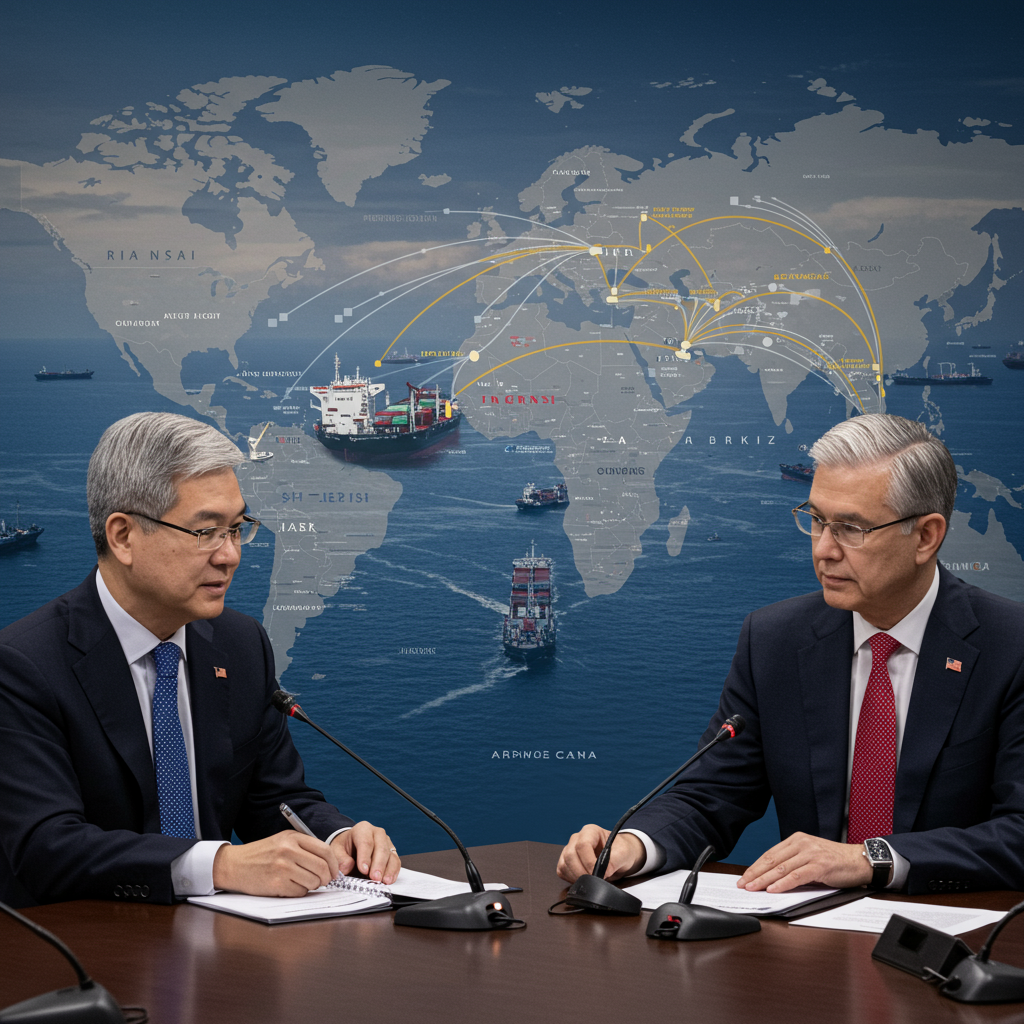US Urges China to Intervene on Critical Global Shipping Route
Amid escalating tensions in the Middle East, the United States has made a direct appeal to China, urging Beijing to use its influence to prevent Iran from closing the Strait of Hormuz. This vital waterway is a critical chokepoint for global energy supplies, and any disruption could have severe worldwide economic repercussions.
The request came from US Secretary of State and National Security Adviser Marco Rubio following reports that Iran’s parliament had approved a plan to potentially close the Strait. While the measure was reportedly approved by lawmakers, the final decision rests with Iran’s Supreme National Security Council.
Rubio publicly called on the Chinese government to contact Tehran about the potential move. “I encourage the Chinese government in Beijing to call them [Iran] about that,” Rubio stated, highlighting China’s heavy dependence on the Strait for its significant oil imports.
Why the Strait of Hormuz Matters
The Strait of Hormuz is arguably one of the world’s most important shipping routes. Approximately 20% of the world’s total petroleum consumption, including oil and gas, passes through this narrow passage daily. Major energy producers in the Middle East rely exclusively on this waterway to transport their output to global markets.
Any attempt to impede traffic in the Strait would immediately threaten a significant portion of the world’s energy supply, sending global oil prices skyrocketing and potentially causing widespread economic instability.
China’s Pivotal Role
The US appeal targets China specifically because Beijing is the world’s largest single buyer of Iranian oil and maintains a close relationship with the government in Tehran. According to recent data from ship tracking firms, China’s imports from Iran have been substantial, surpassing 1.8 million barrels per day in the month prior to these developments.
Rubio argued that while closing the Strait might seem like a retaliatory measure for Iran, it would effectively be “economic suicide” for the Islamic Republic due to its heavy reliance on oil exports. However, he warned that such a move would hurt other countries’ economies, particularly those heavily reliant on the Strait like China, India, Japan, and South Korea, “a lot worse than ours [the US].” He also affirmed that the US retains “options to deal with that,” suggesting potential military responses. Other nations should also be concerned and look at their own options, Rubio added.
Tensions Flare After US Strikes
The backdrop to this diplomatic pressure is the recent escalation in the region, specifically following US military strikes on Iranian nuclear sites. US President Donald Trump claimed Washington had “obliterated” key Iranian nuclear facilities, employing a considerable arsenal including bunker-buster bombs and Tomahawk missiles.
However, the extent of the damage from these strikes remains uncertain. The UN’s nuclear watchdog reported it was unable to assess the damage at the heavily fortified underground Fordo nuclear site. Iran claimed only minor damage occurred there, although some reports suggested satellite imagery indicated more serious impacts. Following the strikes, Trump issued a stark warning to Iran, threatening “far worse” future attacks if the country did not abandon its nuclear program. Tehran, in turn, has vowed to defend itself and warned against any retaliation being “the worst mistake they’ve ever made.”
Global Reactions and Expert Insights
Energy analysts underscore the high stakes involved. Saul Kavonic, head of energy research at MST Financial, noted the significant US defense posture in the region, prepared for potential Iranian counter-attacks, but cautioned that the situation could escalate severely, posing risks to oil prices.
Vandana Hari, another energy analyst, suggested Iran has “little to gain and too much to lose” from closing the Strait. Such a drastic action, she argued, risks alienating its oil and gas producing neighbors in the Gulf and, critically, invoking the “ire of its key market China” by disrupting traffic.
China’s reaction to the US actions and the broader regional tensions has been critical. Beijing stated the US strikes had damaged Washington’s credibility and called for an immediate ceasefire. China’s UN Ambassador urged all parties to restrain the “impulse of force… and adding fuel to the fire.” An editorial in China’s state newspaper, Global Times, echoed this sentiment, asserting that US involvement had “further complicated and destabilised the Middle East situation,” pushing the conflict towards an “uncontrollable state.”
The US call on China highlights the interconnected nature of global energy markets and the complex geopolitical dynamics in the Middle East, where the potential closure of a single waterway holds the power to disrupt economies worldwide.


